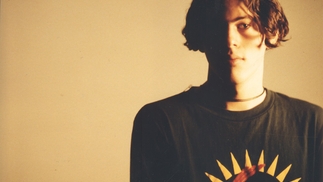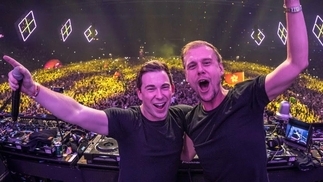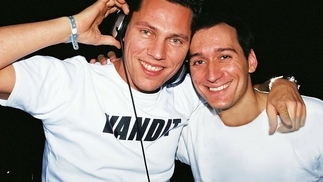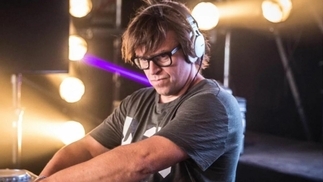MAT ZO: COMPLETE CONTROL
It’s taken three years, countless gigs, umpteen rewrites, a clutch of Beatport chart toppers, and one high profile plagiarism case, but finally — finally — Mat Zo’s hyper colour debut is ready to go...
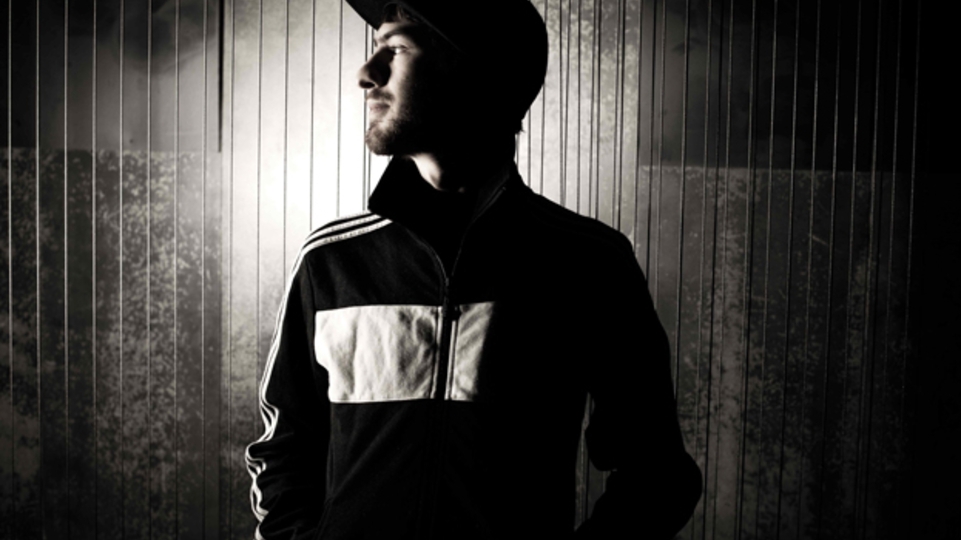
“It’s not the same album it was three years ago!” Mat Zo laughs, Skyping from his current base in the LA suburbs. “I’ve done a lot of cutting and adding new bits, then cutting those. It’s been a very, very chaotic process. The first few tracks that I had on the album, they’re gone. Now they’re like a version of a version of a version of a track that I started when I started the album, so it’s a really evolutionary process.”
Titled 'Damage Control', Zo’s eagerly-awaited debut kicks off with the kind of portentous big room boom you’d expect from the trance/drum & bass/house/dubstep/electronic wonderkid. Opener 'Only For You' is a pristine homage to Zo’s beloved French house, chords gleaming bright as chrome under a Mediterranean sun. It’s followed by the drops and drama of his massive Porter Robinson collaboration 'Easy'. “It was a lot of fun working together,” Zo remembers.
“On that track he heavily worked on the beats, and I did the melody.” 'Easy' is the epitome of the global sound of EDM, switching from colossal dubstep breakdowns to giant slabs of 4/4. It’s ruthlessly efficient, and cynics might have expected 'Damage Control' to have been packed with paler retreads of the formula.
Not so. After 'Easy' fades, the album switches. 'Caller ID' snakes from the speakers.
Previewed on Zo’s wildly eclectic Essential Mix earlier this year, the track splices the snare rattles of trap with melancholic Indian percussion, and the result is a stunning wash of meditative electronica, hard enough for the dancefloor but deep enough to push the set into strange new pastures. It’s one of several moments on the album that serve as well-timed counterpoints to the bombastic shimmers Zo’s fanbase have come to love. They mark 'Damage Control' as an album in the traditional sense, rather than a one-dimensional set of peak-time bangers.
“I realised that if I was going to explore and try different things then that was through an album, so I had an hour to work with and I could do whatever I wanted,” Mat confirms. Unsurprisingly, he eschews the controversial EDM tag. “I prefer just calling it electronic music, or dance music, depending on what I’m doing. It’s primal, you know? There’s something about a kick drum, four to the floor at 128 bpm that triggers something deeper than humanity. Maybe it's spiritual, maybe it’s just chemical...
“If you’re an electronic producer there’s no point sticking to one genre. You can do so much with the medium you’re given, so why just stick to one? It’s like being a chef and only cooking one dish or one style. If you look at people like the Chemical Brothers and Daft Punk and The Prodigy, they’ve been doing loads of different styles and getting influences from other genres for years and years — I think it’s just the underground which, just now, has started getting a bit more eclectic. There will always be people who stick to one style and do it really well, but for me personally I feel like it’s just a bit boring to do that.”
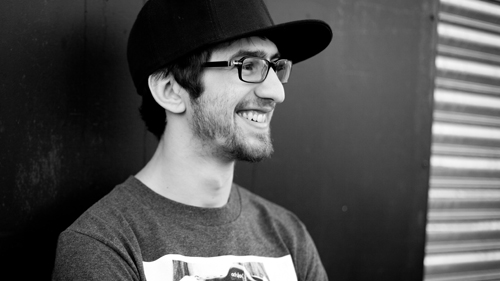
GENRE POLYGAMY
On 'Damage Control', this means that unashamed hands-aloft moments such as 'Pyramid Scheme' — augmented by the gruff vocals of Public Enemy’s iconic frontman Chuck D — nestle against the trippy, head in clouds swing of 'The Sky', a track that starts off with a lovely arpeggiated shuffle then builds to a sensory crescendo, Zo’s blazing synth lines soaring like the guitar of a bitcrushed Hendrix. Further in you find 'Lucid Dreams' — a neon-drenched vocal house epic — sequenced next to 'EZ', Zo’s excursion into the moody, midnight atmospherics of two-step. It’s testimony to his musicianship that he pulls them all together with consummate ease, but also leads you to wonder how he translates this genre polygamy to the festival circuit. He’s been a feature on festival line-ups round the globe, and has just now come back from four dates in India — do the crowd go with his eclecticism? He admits that the live show is pared down.
“For my live sets it’s not as varied as my album — I have to cater to the crowd a little bit when I’m playing a big festival; because they’re there for a purpose and you’ve gotta cater to that — I still try and throw in some different styles and influences there.”
Surprisingly, the prolific producer also confesses that he shies away from playing his own tracks during his DJ sets. “When I DJ I mainly play other people's stuff, but I’m trying to work more and more of my own stuff into my sets. I just feel that sometimes my tracks lack energy when it comes to a dancefloor situation, so I do a lot of mash-ups with my own tunes, to get those big drops from other people. There are a few that work really well, but it’s something that I really need to work on. I think it’s not uncommon for DJs to feel insecure playing their own songs. I think we’ve spent so long on them and invested so much time, we’re already sick of them because we’ve heard them so much. After a while your brain's kinda trained to just listen out for the mistakes.”
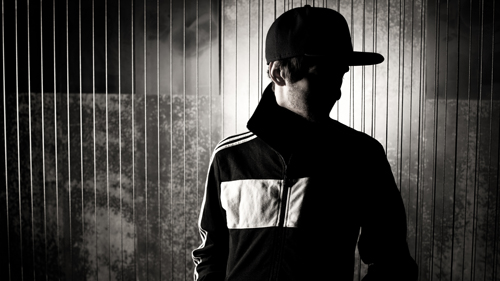
UNCOMPROMISING
Whatever he’s playing is working. Zo’s Beatport chart toppers combined with a sharp skill on the turntables have helped him break into the A list in the States, with all the madness and privilege that entails. Inevitably, he’s come up against the new breed of bandwagon promoters who think that ‘dance’ and ‘pop’ are one and the same, but Zo isn’t ready to compromise just yet.
“I have a line which I draw,” he asserts. “Like, say I get a residency and they ask me to play stuff which I wouldn’t normally play. Regardless of how much money it is, I’m not the kind of person to go up and play [the] Top 10 Beatport chart. It’s just beyond my dignity. There are certain cities where promoters will tell you what to play, like they’ll want it more poppy, or they’ll say play more stuff with vocals, and every DJ who plays in these cities has to deal with that shit. They never tell you before, obviously, cos that’d be stupid of them. But you know, there’s only so much stuff in my library. I don’t download tunes which I don’t like! So I’m gonna play music which I have on my USB, and I’ll try to accommodate where I can, but if it doesn’t suit their needs there’s not much I can do about it.”
In a bizarre twist, this ascent to the mainstream has been given a boost by the unlikeliest of endorsements. Earlier this year global pop muppet Will.i.am decided that he loved 'Rebound', Zo’s collaboration with Arty. In his wisdom, Will realised that what 'Rebound' really missed was his vocals. In fact, what it missed was his vocals — AND a verse from celebrated Rihanna mangle, Chris Brown. Quick sharp, he knocked up a ‘rap’, got Brown to warble some tosh over the track, retitled it 'Let Go' and chucked it on his album, putting a nod to Arty on the album writers' credits as a generous after thought. Unfortunately, whilst Will.i.am has been in the industry some two decades, it seems he never got his head round the idea of copyright. If the old maxim holds true, and talent borrows whilst genius steals, turns out Will’s a genius. The first Zo heard of the pillage of 'Rebound' “was an email from Arty, or Anjunabeats saying ‘check this out’ and it all started from there”. He continues:
“I actually met Will.i.am before — he wouldn’t remember it, but he was at some show in LA I went to at Exchange — and we met — this was months and months before any of the 'Rebound' infringement stuff. I don’t think he knew what the hell I was, I just said ‘nice to meet you’, we shook hands, and that was it. He didn’t seem to have that look in his eye of ‘I'm going to steal your track...’”
Regardless, steal he did. Anjunabeats quickly went to the press to point out that the track hadn’t been licensed in any way. Will.i.am ludicrously claimed ‘he thought it was OK’, and faced a comprehensive mocking from the internet. Now the lawyers have moved in — as Zo diplomatically puts it.
“It’s in the process of being resolved as we speak. Me and Arty have the same lawyer so it’s being settled. When it happened it was a really weird combination of emotions. I mean one, you’re pissed off, two you’re confused as to how they thought they’d get away with it, and three, you realise, hang on, this is a really good thing for us...! So it’s like this see-saw of emotions.”
THERAPEUTIC
Whilst the 'Rebound' saga may have pushed Zo’s profile that little bit closer to the mainstream, he’s not wasting time dwelling on it, busy instead with work on his next album, this time with a definite plan in mind. “With the new one I want to go with more of an overall theme, as though it was a movie score for a film that doesn’t exist. I want it to have more of a narrative than the last one, though I have no idea what the narrative is yet! It has to feel like a story, that’s the challenge I’m giving myself.”
And though he may not know the narrative, Zo’s already deciding to make the new album more organic, with a recent rediscovery of playing instruments enlivening his production.
“I’ve been recording a lot of live instruments recently, a lot more of my stuff in the future will have live stuff on it, I’ve got a guitar and a bass, and I’ve been trying to write more ‘human’ sounding music as an experiment. And, y’know, if it goes anywhere good it might make it out there. For me, I started with instruments so it’s kinda like a return. It’s therapeutic. I always wanted to produce for bands as well. It’d be great to produce for Radiohead, but that’s aiming high..!”
This may not be the best news for house fans hoping for 'Easy' part 2, but Zo isn’t looking to abandon dance music any time soon, whether the EDM bubble bursts or not. “Nothing lasts forever,” he reflects. “That’s the constant isn’t it? Change. I don’t think anything lasts forever, and it would be naïve to think it would. Dance music in particular will definitely change, but electronic music will survive because there are so many ways it can go. If dance music goes completely underground, I’ll still do dance music, but I’ll always be looking for something else, something new to produce. This is what I’ve been doing since I left school — I think about it a lot, my life is very surreal, but I don’t have anything else to compare it to...”
